This page provides key coordinates to understand my pathway towards becoming a sustainability scientist – a journey still in progress.
Transdisciplinary science
Since 2012, I have been researching sustainability issues from a social science perspective, with an inter- and trans-disciplinary approach.
From the very beginning of my academic journey, I’ve had the privilege to work with scientists and practitioners of different disciplinary and cultural backgrounds. I’ve collaborated and co-created outputs with environmental scientists, geographers, sociologists, political scientists, jurists, climate change modelers, anthropologists, linguists, environmental engineers, forest economists, and many others.
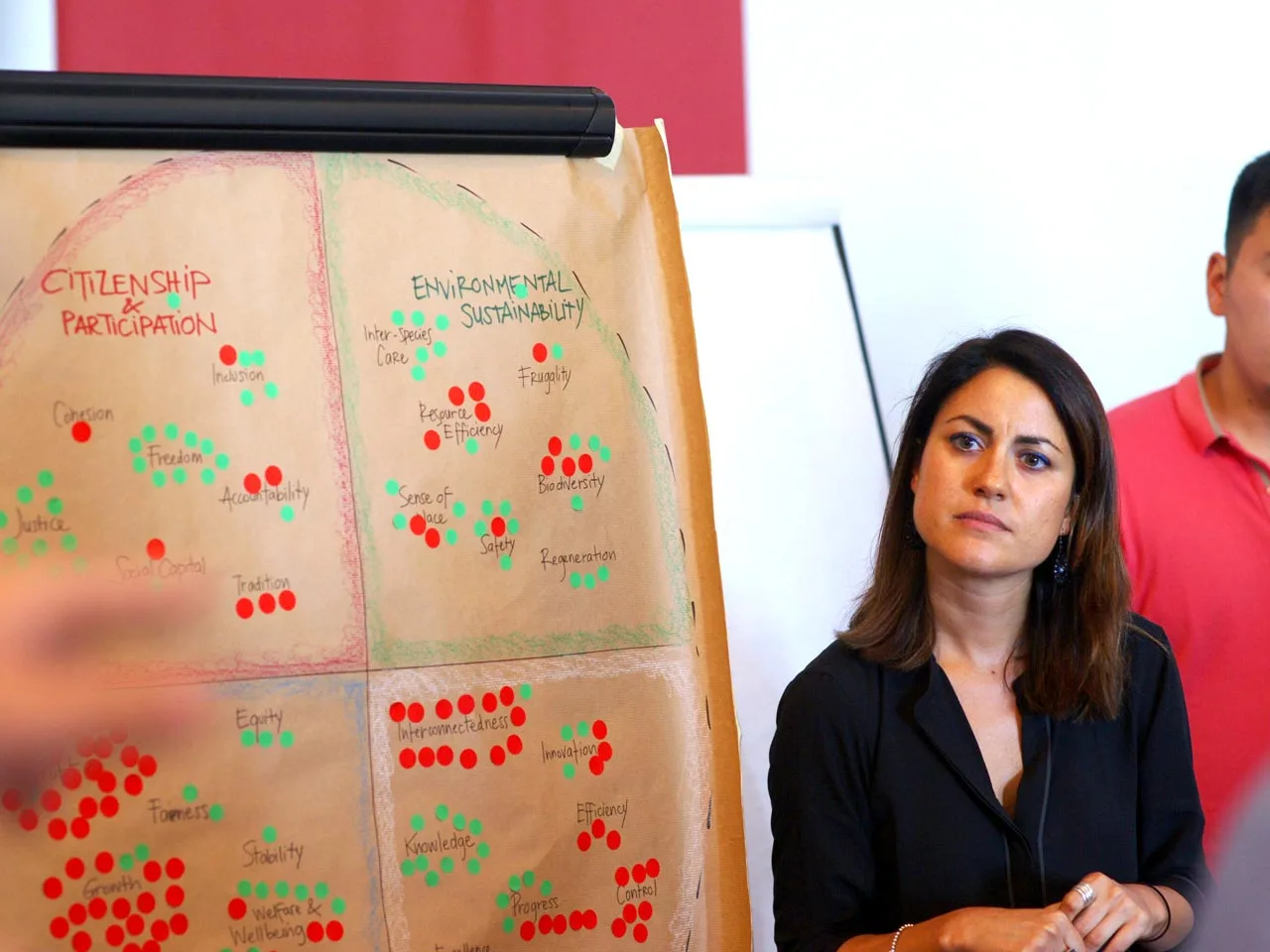
Picture by Daniele Brombal.
This led me to understand the complexity of sustainability issues, the many “languages” we need to navigate and mediate, the different ontological and epistemological paradigms we stand by, and most of all, the crucial need for integrated and holistic approaches and solutions.
I have conducted extensive fieldwork in China, Finland, and Italy, working with stakeholders from the public, private, and societal sectors, and grappling with the situated and embedded nature of sustainability issues. I am thus convinced that we need a procedural and place-based approach to sustainability, one based on an emergent, dynamic, and bottom-up process rather than a static, general, and top-down definition. This also means bringing to the table not just probable or possible solutions, but also desired futures. What do we want for society and for our Earth? What does it mean to live well, in a specific context? To address these questions, we need “some understanding of the ecological, social, cultural and economic consequences of different courses of action” (ref: Miller 2013); we also need to engage with values, emotions, and ethics.
Sustainable change & innovation
There can be no sustainability without profound change. I believe in sustainability transformations beyond the business-as-usual, that address the structural and systemic issues lying at the basis of the current socio-economic and environmental crisis.
Over the years, I’ve researched transformations from multiple perspectives, studying:
- Rural-mountain communities committed to bio-cultural diversity and regeneration (in Italy);
- Young people voicing alternative narratives and paradigms about rural-mountain areas, and their human-nature relations (in Italy);
- Social entrepreneurs offering Green Care services (in Finland and Italy);
- Scholars and educators committed to transforming the ways we produce knowledge (in Europe);
- Care-inspired ways of being and acting in the world and in academia (in Europe);
- NGOs working at the interface of gender and climate change adaptation (in China);
- Public participation, civil society activism, and female activism (in China);
- Environmental governance and institutional change (in China).
Picture by Daniele Brombal.
Participatory research
For all the above reasons, participatory, action-oriented, and (co-)creative methods have always been a core ally in my work.
I first encountered social research methods in China, conducting interviews, questionnaires, and focus groups (in Chinese language), with farmers, policy-makers, citizens, NGOs representatives, and other stakeholders.
Over the years, I grew passionate about action-research. Once back in Europe, I expanded my portfolio of methods, including arts-based, visual, embodied, and experiential ones – and collecting some of them in the database Re.imaginary.
My passion for methods and their potential in changing not only sustainability-related conversations but also ways of working, thinking, and being, led me to gain professional training in facilitation, transformative learning, and organizational leadership and management. I am a passionate practitioner of Theory U and Appreciative Inquiry; I also draw heavily from system thinking, design thinking, and future thinking.
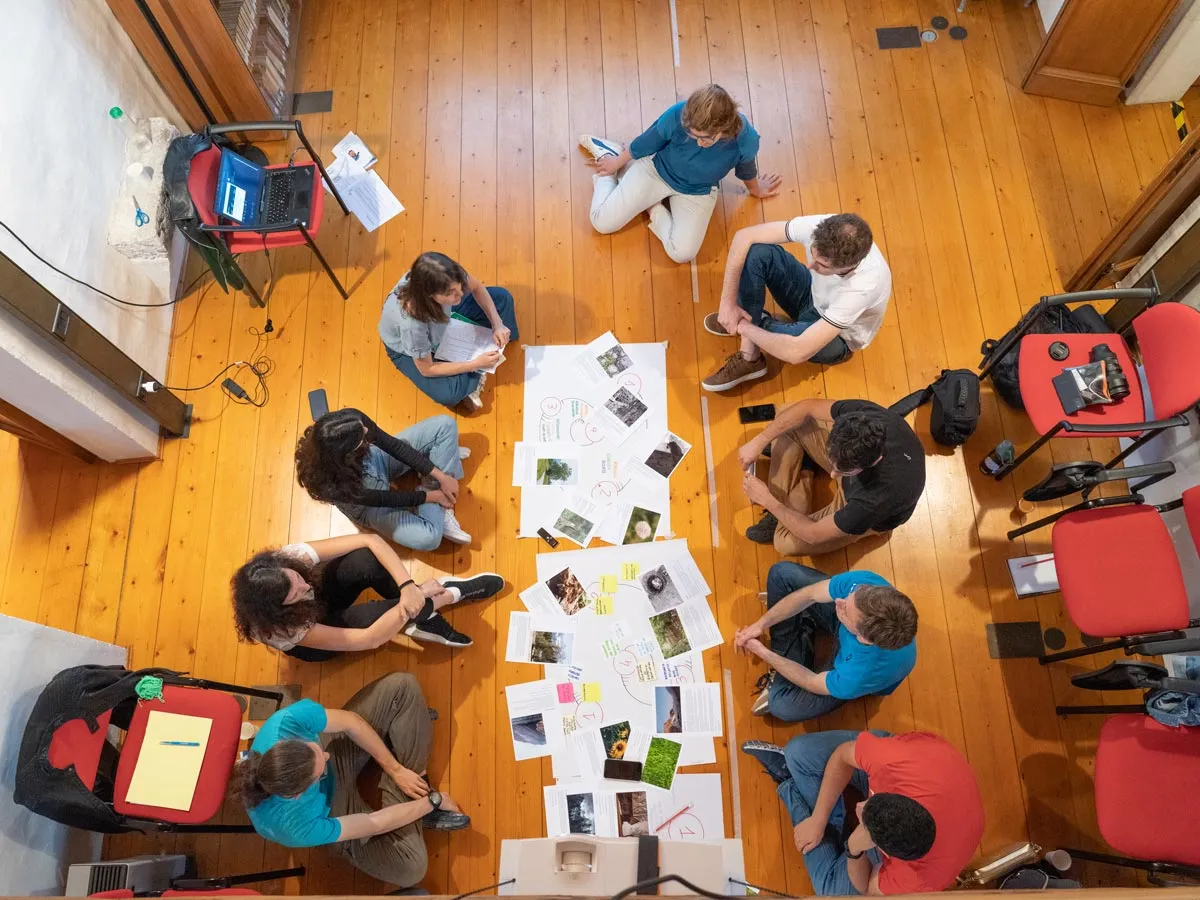
Picture by Giulia Corradini.
Science communication
“Nothing in science has any value to society if it is not communicated”, said once scientist Anne Roe.
A variety of experiences in science communication have stretched the boundaries of my comfort zone and brought my academic learning journey to a different level of awareness. In 2020 we published “Once upon the future: Everyday adventures that change the world”, a collection of children stories to inspire place-based sustainability. At the end of my PhD, I co-created the video-documentary “Nature as pathway: A participatory action-research”, narrating the participatory process of my study with Green Care entrepreneurs in Finland. Over the years, I’ve visited schools, museums, fairs, and festivals, to share knowledge with the wider public.
Education
Education is perhaps my favorite realm for transdisciplinary experimentation.
I use facilitation approaches and methods to transform the learning journey from a passive experience to an active process of change for individuals and groups. I am deeply inspired by critical and transgressive pedagogies, as well as pedagogies of care.
Over the years, I have been entrusted with the design of different (offline and online) educational projects and transformative learning programs, aimed to stimulate critical thinking, personal development, and transversal skills.
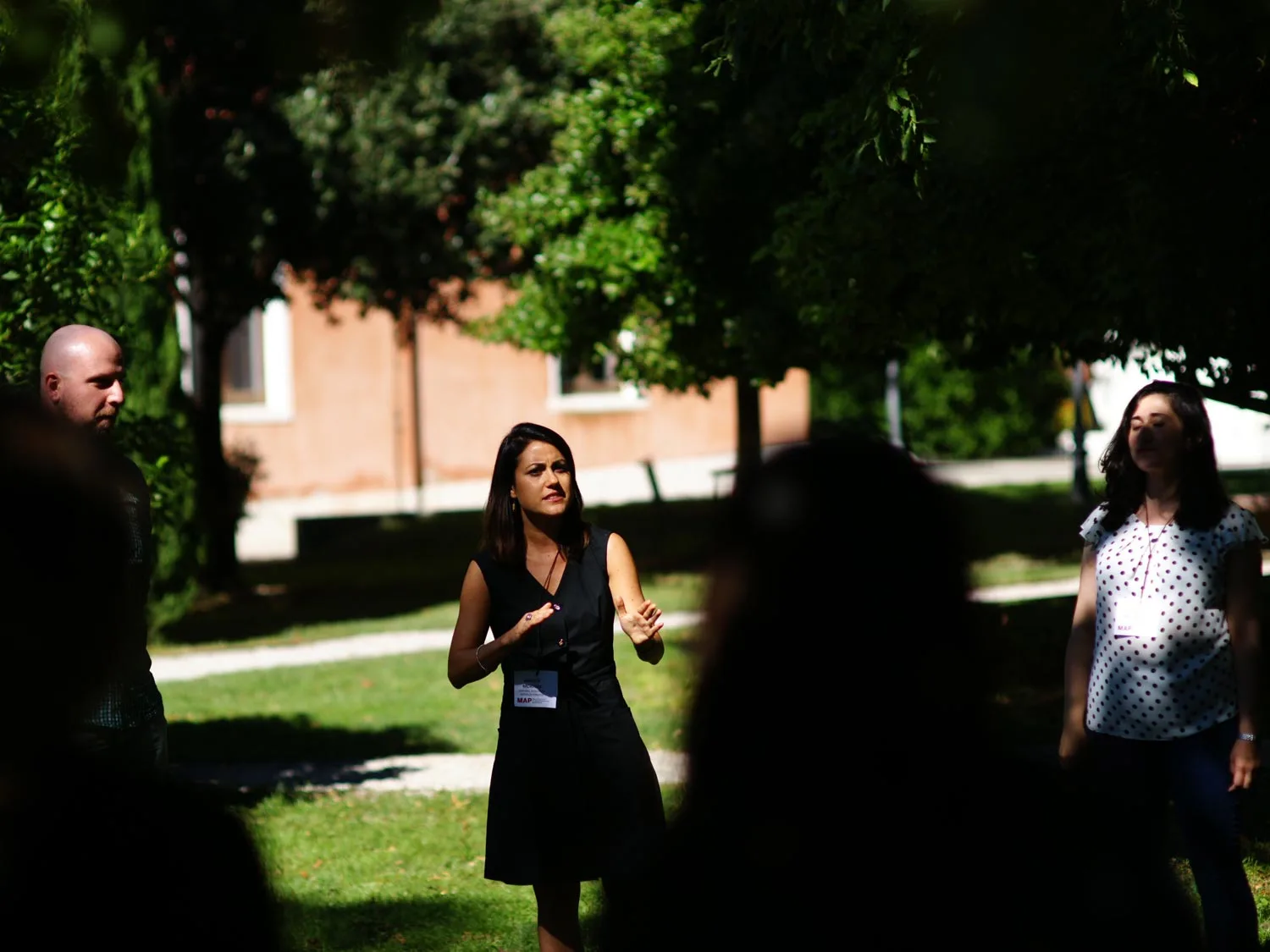
Picture by Daniele Brombal.
Affiliations
I have worked at different Research Institutes and Universities, including:
- University of Padua – Department of Land, Environment, Agriculture and Forestry;
- Natural Resources Institute Finland (Luke) – Bioeconomy and Environment Unit;
- Wageningen University & Research – Rural Sociology Group;
- Ca’ Foscari University of Venice, Dept. of Environmental Sciences, Informatics and Statistics & Dept. of Asian and North African Studies;
- Euro-Mediterranean Centre for Climate Change (CMCC), Risk Assessment & Adaptation Strategies Division;
- University Institute of European Studies (IUSE);
I also spent some time as a visiting scholar at:
- Wageningen University & Research – Forest and Nature Conservation Policy Group;
- Beijing Normal University (BNU) – School of Environment;
- Chinese Research Academy of Environmental Sciences (CRAES);
- Beijing Normal University (BNU) – School of Economics and Business Administration;
Beyond academia
Prior and during my academic career, I gained professional training experiences outside the University realm.
Such as the Delegation of the European Union to China and Mongolia (Science, Technology and Environment Section), the consultancy Except Integrated Sustainability (in the Netherlands), the UK-based think-tank gLAWcal Ltd (Global Law Initiatives for Sustainable Development), and the municipality office of my hometown in Veneto.
Yet, my work ethic and style took shape long before these international experiences. From the age of 14 until my late 20s, I was employed as a waitress and bartender in different restaurant and bars. Twelve-plus years of service work shaped my resourcefulness, attention to detail, empathy towards others, and ability to mediate and collaborate. During my twenties, I also worked as an Italian language teacher (in China and in Italy), a data-entry clerk, and a babysitter.
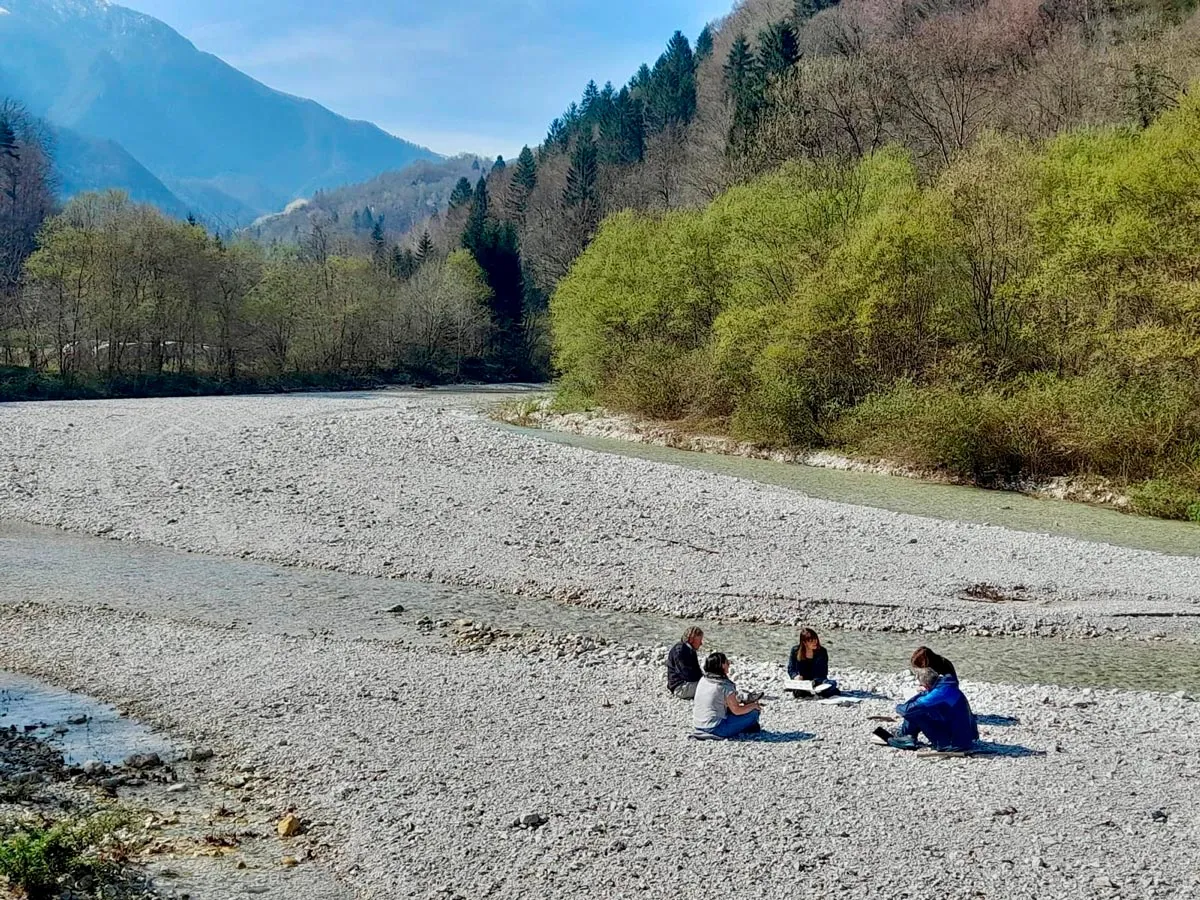
Picture by Elena Andriollo.
Formative path
I am a life-long learner, and my formative journey has been far from linear.
I hold a PhD in Rural Sociology from Wageningen University & Research, a MA in International and Diplomatic Science, and a BA in Oriental History, Cultures, and Civilizations, both from Bologna University.
During my Master studies, I spent three semesters abroad: one academic year at Denver University (USA), at the Joseph Korbel Graduate School of International Studies, and one semester at the Graduate School, Chinese Academy of Social Sciences (CASS) in Beijing (China). Upon obtaining my Bachelor degree, I spent one academic year at Hangzhou University.
My mother tongue is Veneto dialect. I am fluent in Italian and English. I gained professional (yet currently rusty) proficiency in Mandarin Chinese. I gave up learning Finnish after a painful three-month course.
I hold a high-school diploma in “Perito aziendale corrispondente in lingue estere”. During school years, I studied Spanish, French, and German.
HIGH-LEVEL TRAININGS I took at the science-practice interface:
- Sustainable Futures: Politics, Democracy, and Futuring (1.5 ECTS), Utrecht University (2023);
- Transformative Learning Online (1.5 ECTS), Wageningen University (NE) (2020-2021);
- Graphic Facilitation (2.5 ECTS), Graphic Change Ltd. (UK) (2021);
- Creative Writing & Storytelling (4 ECTS), The Writing Coach Ltd. (UK) and The One Planet Center (UK) (2018-2019);
- Leadership in Creative Organization (5 ECTS), Avantage Ltd. (FI) (2018);
- Project Management and Leadership (1.5 ECTS), University of Helsinki (FI) (2017);
Facilitation of Place-Based Development (1.5 ECTS), Royal Haskoning DHV (NE) (2016);
Symbiosis in Development (1.5 ECTS), EXCEPT Integrated Sustainability (NE) (2016).
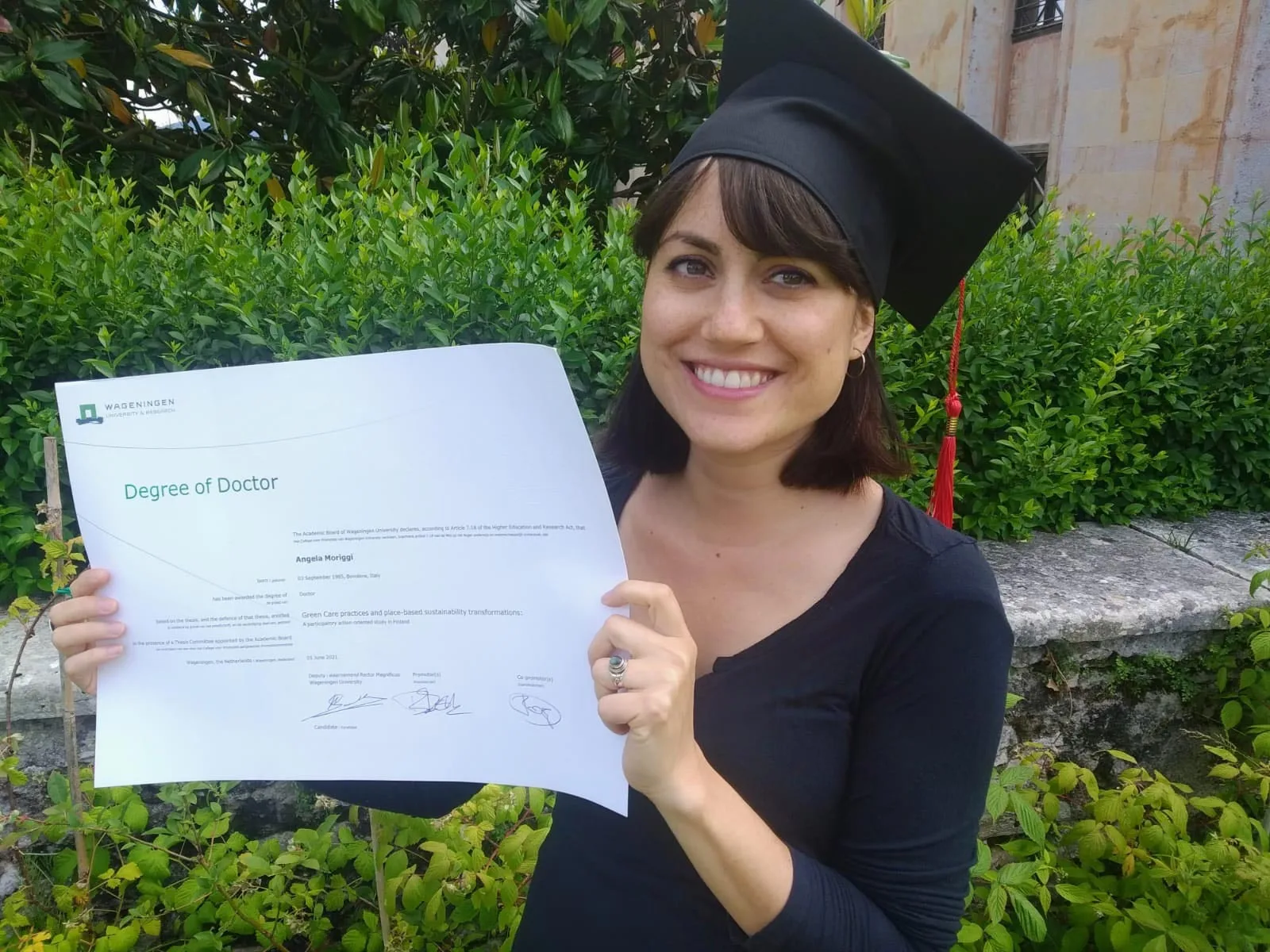
Picture by Daniele Brombal.
Grants, scholarships & awards
- Marie Sklodowska Curie Individual Fellowship (IF), for the project VERVE (tot. 183,473 euro) (2021);
- Best Young Researcher Wageningen School of Social Sciences publication (tot. 2,000 euro) (2019);
- Kone Foundation ‘Bold-maker’ one-year working Grant (tot. 32,000 euro) (2018);
- Marie Sklodowska Curie ITN (Innovative Training Network) Fellowship (2016);
- Marie Sklodowska Curie IRSES (International Research Staff Exchange Scheme) Fellowship (2013, 2014, 2015);
- Overseas Scholarship (2011);
- Erasmus Mundus External Cooperation Window (EM ECW) Scholarship (2010);
- Scholarship for best grade (at graduation) for high-school students (2004) (tot. 1,000 euro).